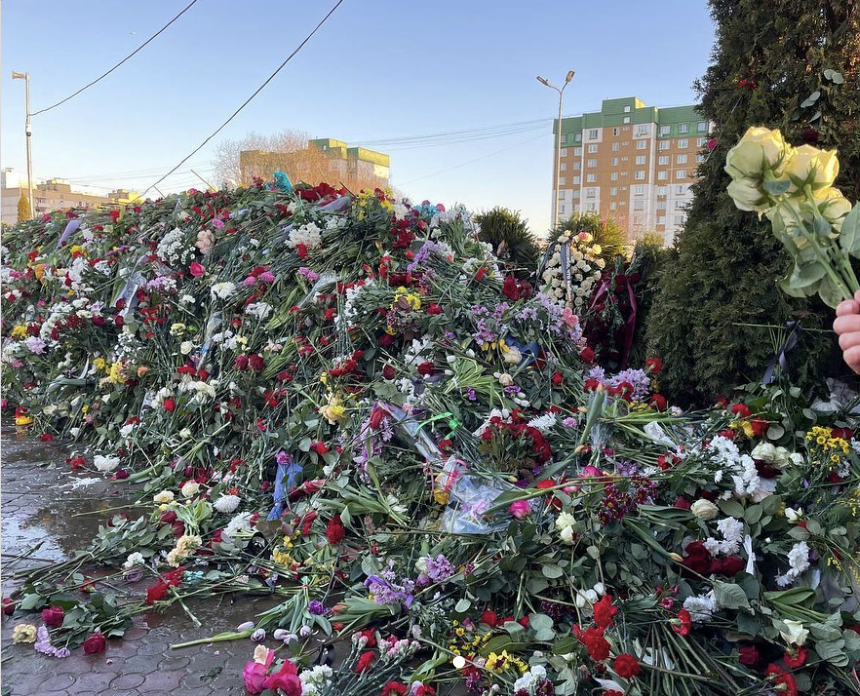Not Only Naval'nyj. Torture in Russian Lagers
One only has to look at the extremely harsh measures of detention, the lack of medical care, and the increasingly frequent and unjustified measures of punishment and solitary confinement to understand how the health and very lives of the condemned are now at risk. The fears for the fate of Vladimir Kara-Murza and Ilya Yasin.
Moscow (AsiaNews) - The case of the death of Aleksej Naval'nyj in a concentration camp is unfortunately not an isolated event, although it expresses an unparalleled opposition to the power of Vladimir Putin.
The number of people locked up for political dissent, and for their religious beliefs, continues to grow exponentially in Russia, especially since the beginning of the Russian invasion of Ukraine, and many of these persecuted for their ideas are subjected to tests and increasingly inhumane torture, as highlighted by many investigations in the Russian and international media, and complaints by human rights activists.
Beyond the medical-legal reconstructions - which in the case of Naval'nyj have not been made accessible and will no longer be able to provide any results, as the body of the great opponent is buried in the grave of the Moscow cemetery of Borisovo - it is clear that the regime Putinian increasingly uses the extreme conditions of prison and concentration camps as an instrument of pressure.
Even without the demonstration of criminal actions such as poisoning or homicidal violence, such as the "punch to the heart" that would have struck down the still young leader of the Russian protest movement, it is enough to observe the very harsh detention measures, the lack of medical assistance and the increasingly frequent and unjustified measures of punishment and isolation, to understand how the health and life itself of the condemned is today exposed to risks increasingly similar to the torture of times past.
On February 16, the prison administration of the Jamalo-Nenetsky district, where the Kharp concentration camp is located, announced that Naval'nyj's walk in the hour of fresh air and frost was interrupted by the "sudden death syndrome", and a few minutes later the RT television channel specified that it was the "detachment of a blood clot", based on unknown sources. The "thrombus" is actually a classic of Russian prisons since Soviet times, "a universal diagnosis to explain any type of traumatic event", recalls activist Anna Karetnikova on Telegram, who had worked in the prison system at her time.
Naval'nyj died after three years of imprisonment in extreme conditions, during which he spent 300 days in solitary confinement for trivial pretexts. Denied medical care several times, he complained of being deprived of sleep by loud lights and sounds, including Putin's speeches blasting from loudspeakers day and night. Russian courts have rejected over 40 appeals he filed for the violence he suffered. Similar conditions are applied to many other prisoners of conscience in Russia.
As Sergei Babinets, head of the human rights defense group “Anti-Violence Squad”, observes in an interview with Azattyk, “the practice of disciplinary punishments takes on increasingly diverse forms, and it becomes evident by observing several recent cases such as that of Viktor Filinkov [convicted in 2020 for terrorism without any basis], that strict measures are now applied even just for a smile at the wrong time and to the wrong person."
Even the most well-known opponents of the Putin regime together with Naval'nyj, such as the politicians Vladimir Kara-Murza (sentenced to 25 years, and twice poisoned) and Ilya Yašin ("only" 9 years, for now) are regularly thrown into prison of punishment for minimal violations of the rules, and many are worried about their fate, being key figures who, like Naval'nyj, refused to flee, indeed they returned from trips abroad knowing full well what they would face.
Kara-Murza's wife, Evgenija, denounces that "these are the conditions to which all those who refuse to remain silent are subjected." From the concentration camp Jašin makes it known that "there is an advantage in the Šizo [the isolation cell], even if you have to live among rats: you are no longer afraid of ending up in the Šizo, because you are already in it".
Many others are destined to be added in the coming days to the list of those tortured in Russian prisons and concentration camps, among those who, defying power, went and continue to go to honor Naval'nyj's tomb, filmed by police cameras. So far, around two hundred have been arrested, but there will soon be many more, so much so that the government is planning to open new and increasingly larger concentration camps. As big as the whole of Russia.
Photo: the flowers on the grave of Alexei Naval'nyj
24/10/2019 17:56







.png)










